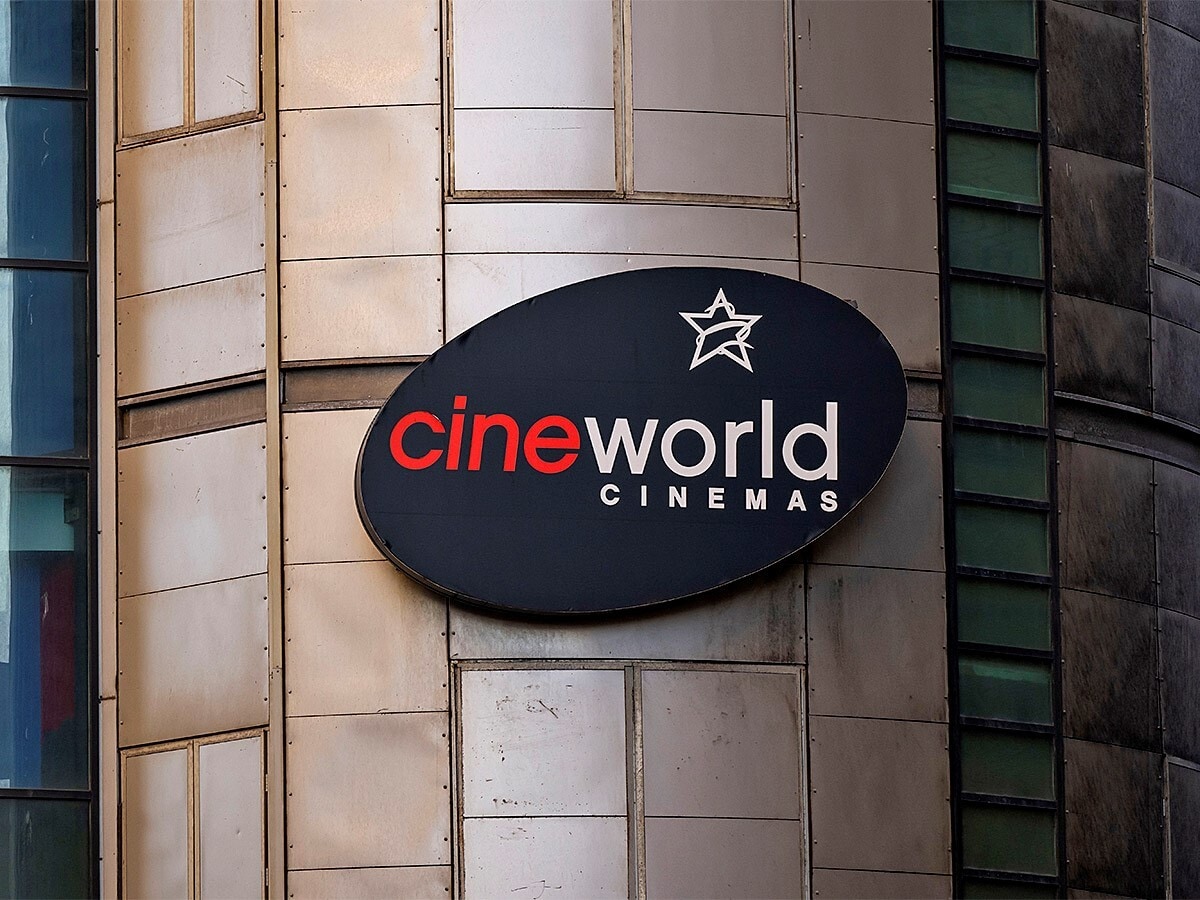Having been clobbered by the pandemic, Cineworld’s share price has yet to stage a comeback. A recovery in the entertainment industry is taking longer than anticipated, with the number of blockbusters hitting screens lagging pre-pandemic levels. That’s left Cineworld’s share price trading around all-time lows. Now a management shake-up is on the cards.
Cineworld’s [CINE.L] share price has dropped 99% over the past five years. Unsurprisingly, the pandemic was the root cause of this. In 2020, the year the pandemic broke, Cineworld shares fell almost 71%. A brief rally in March 2021 gave way to another slump as financial pressures, bankruptcy proceedings, and a dearth of new content to entice moviegoers weighed on the stock.
There’s no doubt, however, that the industry is recovering. More movies are being released each year and box office totals are rising. Considering the spiral that Cineworld’s share price has been on, now could be a buying opportunity, as the cinema chain looks to shake up its leadership.
Can a restructuring help Cineworld’s share price?
Cineworld has announced a debt restructuring plan with its biggest lenders to help bring it out of Chapter 11 bankruptcy proceedings. The deal would see Cineworld’s debt reduced by $4.5bn, and give lenders equity in the restructured business. Chief executive Mooky Greidinger described the deal as a “vote of confidence” in the ailing business, although Cineworld shares dropped more than 23% on the news.
Greidinger is also in the crosshairs of creditors, who are planning to replace the CEO of the third-generation family business. Greidinger’s grandfather started Cineworld with a single cinema in Haifa, Israel, in 1930, and the family own around a fifth of Cineworld stock.
Should Greidinger go, it’s likely other family members in executive positions would quit. In line to replace the beleaguered CEO is the former chief finance office at Regal Cinemas, David Ownby. Ownby has been helping steer Cineworld’s biggest creditors through the bankruptcy proceedings.
In the background of all this are Cineworld’s struggles to recover from the pandemic. The most recently published financial results revealed the cinema chain had burnt through $144.9m in cash for the first half of 2022. While that’s down from $271m in 2021, it’s still an eye-watering number. Revenue for the period was $1.5bn, up from $292.8m for the same period the previous year. Operating profit was $57.3m, up from an operating loss of $208.9m.
Cineworld revised down its short- and medium-term admission targets after slower-than-expected recovery in admission numbers in 2022, with forecasts suggesting there will be fewer theatrical releases in 2023 and 2024.
At the time, Cineworld announced that it would enter into a Chapter 11 reorganisation process to “implement a de‐leveraging transaction that will provide the financial strength and flexibility to accelerate and capitalize on Cineworld's strategy”.
Entertainment industry remains in recovery mode
The pandemic hit the cinema industry hard. In the US, a mere 215m tickets were sold in 2020, according to industry website The Numbers, as the Covid-19 outbreak forced cinemas to shut their doors. Blockbusters like No Time to Die or Marvel’s Black Widow were either delayed or released on streaming platforms. A bleak year for an industry that had sold 1.2 billion tickets the year before.
The box office is still lagging pre-pandemic levels, with 744m tickets sold in the US last year. But more people are now venturing back out to the cinema thanks to titles like Top Gun: Maverick, The Batman and John Wick: Chapter 4. Over Easter, The Super Mario Bros. Movie powered its way to a $204m opening in the US over the first five days of release.
This year it’s projected that the six major US studios will release 76 movies between them, up from 59 last year and well ahead of the 34 released in 2020. Prior to the pandemic, 87 major studio movies were released at the US box office in 2019.
Whether a change in management can restore Cineworld’s share price performance is debatable, but more widely the film industry is edging back to pre-pandemic levels. Later this year new instalments in the Indiana Jones, Fast and Furious and Dune franchises could drive up audience numbers and box office receipts. Demand is there from the audience, but how long it will take to reverse the effects of the pandemic on the industry—and return profit to cinema chains like Cineworld—remains to be seen.
Disclaimer Past performance is not a reliable indicator of future results.
CMC Markets is an execution-only service provider. The material (whether or not it states any opinions) is for general information purposes only, and does not take into account your personal circumstances or objectives. Nothing in this material is (or should be considered to be) financial, investment or other advice on which reliance should be placed. No opinion given in the material constitutes a recommendation by CMC Markets or the author that any particular investment, security, transaction or investment strategy is suitable for any specific person.
The material has not been prepared in accordance with legal requirements designed to promote the independence of investment research. Although we are not specifically prevented from dealing before providing this material, we do not seek to take advantage of the material prior to its dissemination.
CMC Markets does not endorse or offer opinion on the trading strategies used by the author. Their trading strategies do not guarantee any return and CMC Markets shall not be held responsible for any loss that you may incur, either directly or indirectly, arising from any investment based on any information contained herein.
*Tax treatment depends on individual circumstances and can change or may differ in a jurisdiction other than the UK.
Continue reading for FREE
- Includes free newsletter updates, unsubscribe anytime. Privacy policy





